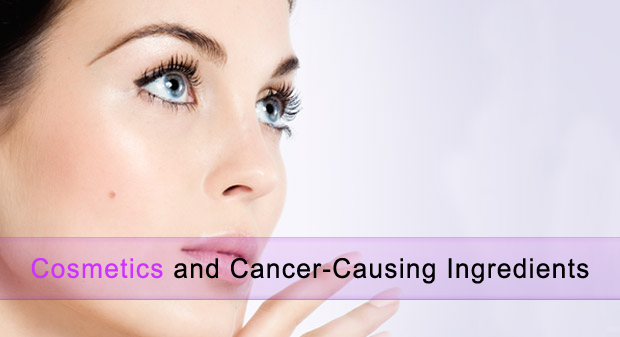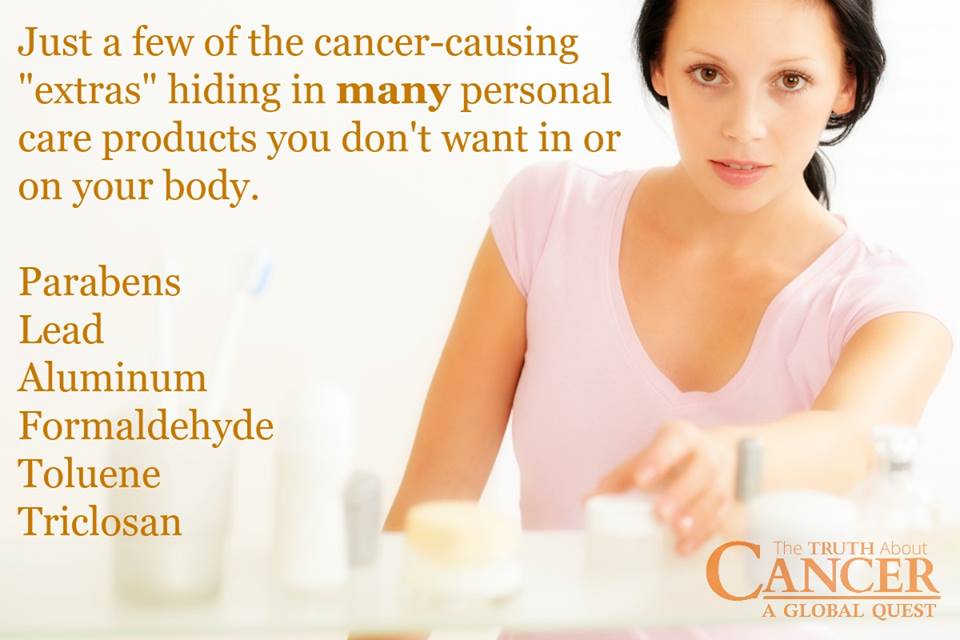Wanting to “perfect” our appearance is a natural human desire. Since the beginning of recorded humanity, there were depictions of men and women using various products to appease the fashion of the time.
You will find makeup everywhere you shop (as well as online) from grocery stores to your local mall. Anything you want to “fix” or “change,” there is likely a product for it. All the products in fancy packaging are targeted to consumers who want to look and feel good.
Pressed powders, shampoos, moisturizers, lipstick, and toothpastes are created to make your skin smoother, give your hair more volume, your teeth whiter, and so on.
How can we be sure that we are not being exposed to toxins in our cosmetics?
There have been discussions over the last decade about our beauty care products and if they could possibly contain cancer-causing ingredients.
Unfortunately, many of these fears are well founded and such a possibility should not be taken lightly. After all, anything applied to our skin is quickly absorbed through our pores directly into our bloodstream.
What’s the real story? Let’s examine a few of the most common beauty products and the ingredients that have researchers concerned.
Common Toxins in Cosmetics
- Parabens: Many products – such as spray deodorants, facial creams, hair products, and toothpaste – contain chemicals called parabens, which mimic human estrogen. In one study conducted at the University of Reading in the United Kingdom, 99% of study participants with breast cancer had paraben accumulation in their tumors. Even women who didn’t regularly use products known to contain parabens presented with parabens in their tumor tissue. More research needs to be done but considering the increasing use of parabens in pharmaceutical drugs and as a food additive, it should be avoided if at all possible. The word “paraben” is sometimes combined with methyl, propyl, isobutyl, or ethyl – so read your labels!
- Lead: The toxic heavy metal lead was found in more than 60% of popular lipsticks investigated by the Federal Food and Drug Administration (FDA). While mercury has been an issue with cosmetics manufactured in China, the FDA findings shine a bright light on “trusted” companies such as Revlon, L’Oreal, and Maybelline – bringing cancer-causing ingredients that “weren’t our problem” directly into our local stores. Chromium, cadmium, and aluminum were some of the other metals detected during the study. The FDA announced that they do not consider their findings to be a safety issue. In fact, a representative from the Personal Care Products Council said of the findings, “Food is a primary source for many of these naturally present metals, and exposure from lip products is minimal in comparison.” Indeed.
- Formaldehyde, et al: Hair color, relaxers, straighteners, shampoos, conditioners, and hair extension glue contain a host of toxic chemicals. Some of the worst include formaldehyde, (an internationally classified carcinogen), toluene (banned in Europe due to the danger to developing fetuses), hydroquinone (which increases sun sensitivity), and phthalates (linked in several studies to reproductive problems). Many of these chemicals are also found in sunless tanning lotions and hair removal creams.
- Triclosan: Toothpaste, body wash, and deodorant are using antimicrobial chemicals such as triclosan to prevent bacterial growth. However, not only is standard soap and water just as effective, triclosan is considered an endocrine disruptor. Use of products containing this chemical can lead to reproductive issues, thyroid malfunction, and even cancer.
The take-away from these findings is that you should consider switching to natural and organic beauty care products – increasingly available in even big box stores – as an alternative to the products you are accustomed to buying.
Always do your research! If there is a particular cosmetic item that you are loyal to, check it out and make sure that the manufacture is thinking about your health and well-being.
Remember, you apply many of these products to your skin – where it is absorbed directly into your bloodstream. Spending a bit more to ensure you aren’t getting formaldehyde and lead in products you may use every day, seems a small price to pay.




















YOU HAD AN EPISODE WERE A YOUNG MAN TOLD HIS MOTHER TO COMBINED SOME OILS CREAMS ETC TOGETHER TO PUT ON HER BODY. THIS WAS LAST YEAR, IS THERE ANYWAY THAT YOU CAN DIRECT ME TO THE RIGHT VIDEO?? I WOULD APPRECIATE IT SO MUCH! GOD BLESS. SINCERELY, THERESA
I would love that information as well. I somehow thought it was Dr. Axe but I could be mistaken. At any rate I cannot for the life of me find it.
I believe it was Episode 2 or 3. That was Dr. Axe explaining how essential oils can be effective in fighting cancer. The recipe that I use is organic shea butter, organic coconut oil, sweet almond oil (use can use avocado oil if you have a nut sensitivity) and frankincense oil. You melt everything together (except the frankincense) on a low heat, let it set up in the fridge for a while and then use a hand mixer to mix it up to a creamy consistency and then mix in the frankincense. I am addicted to it and use it all over my body. I use Young Living Essential oils and could help you get some. Young Living is therapeutic grade and one of the best out there.
I saw it on episode 2 when they talked about essential oils that cure cancer. He said to make the Frankincense and Myrrh body butter by putting 10drops of Frankincense, 10 drops of Myrrh essential oil with some coconut oil and Shea butter (use 1/2 cup each, melt down, then when cool add the essential oils. It can be whipped to make a Creamy butter) rub the body with it especially the neck. I make it, its a wonderful anti-aging skin butter for face and body.
Thank you so much! I will be making some this afternoon.
Hello I think I know what Doctor and episode you are talking about. His name is Dr. Josh Axe and this is the link to the video. https://go2.thetruthaboutcancer.com/agq/episode-2/
it was in episode 2
I think there’s a man in episode 2 or 3 that talks about that. Frankincense oil, myrrh, coconut oil and Shea butter, all organic.
There are no definitions for “natural” and no regulations for “organic” skin care. You need to find a company you trust that is committed to providing safe products with a strict ingredient policy. I use Arbonne. Love the products, love the company’s philosophy.
read the labels on your arbonne products and see the chemicals, carcinogens still in the products.
I use http://www.purehaven.com/shelleykramer and http://www.modere.com/2h1w6f. All products without toxic chemicals, modere has been around for over 30 years, first company to manufacture their own product line without the toxic chemicals. pure haven has certified organic products.
would you make me some and i will buy it off of you?
Hi Amy, I have a jar already made and ready to go. I sell it at boutiques and I am going to one tomorrow. Would you like one? Krissy
hey! how much do you charge? do you have an etsy shop or anything?
Do any of you remember the name of the topical cream made from eggplant that is for skin cancer? I’ve also been searching for that.
Is there a list of ingredients to avoid in cosmetics that I could print off and keep? Thanks
I would love it if these very informative articles had a Print button, so I can save them for reference! Just a suggestion…..:-)
Sophie you could try emailing the article to yourself and then cut and paste to a word doc to print 🙂 Hope this helps. Julie